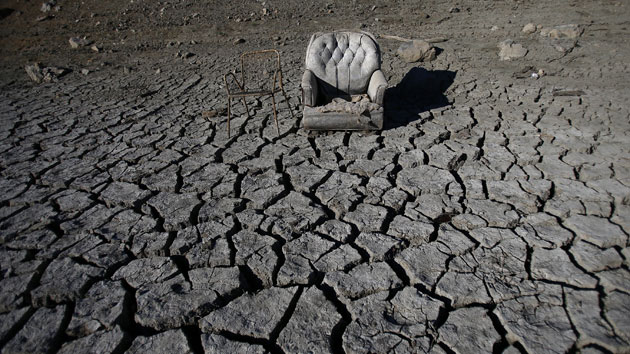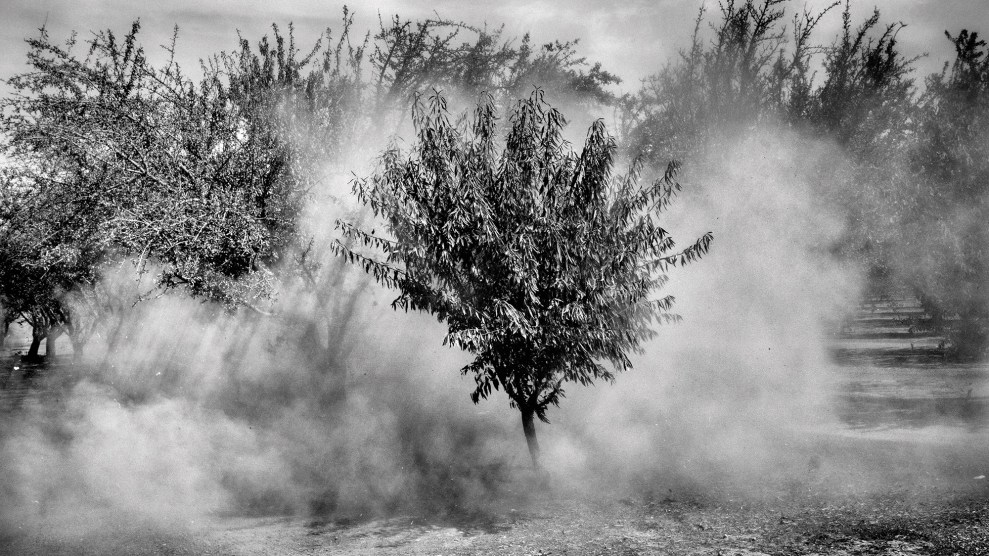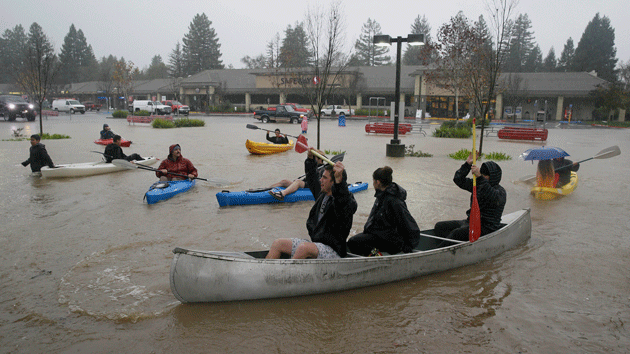
Nhat V. Meyer/San Jose Mercury News/ZUMA
Today, California Governor Jerry Brown announced mandatory water restrictions for the first time in the state’s history. The announcement follows a drought of more than three years, which has officials worrying that Californians may have only one year of drinking water left.
The regulations require California cities to decrease water use by 25 percent, though, crucially, only requires agricultural users to report their water use and submit drought management plans. Agriculture accounts for about 80 percent of California’s water usage. (For more drought background, check out our past coverage on agricultural water use—almonds are the biggest suck—and municipal water use.)
From the press release:
The following is a summary of the executive order issued by the Governor today.
Save Water
For the first time in state history, the Governor has directed the State Water Resources Control Board to implement mandatory water reductions in cities and towns across California to reduce water usage by 25 percent. This savings amounts to approximately 1.5 million acre-feet of water over the next nine months, or nearly as much as is currently in Lake Oroville.
To save more water now, the order will also:
Replace 50 million square feet of lawns throughout the state with drought tolerant landscaping in partnership with local governments;
Direct the creation of a temporary, statewide consumer rebate program to replace old appliances with more water and energy efficient models; Require campuses, golf courses, cemeteries and other large landscapes to make significant cuts in water use; and
Prohibit new homes and developments from irrigating with potable water unless water-efficient drip irrigation systems are used, and ban watering of ornamental grass on public street medians.Increase Enforcement
The Governor’s order calls on local water agencies to adjust their rate structures to implement conservation pricing, recognized as an effective way to realize water reductions and discourage water waste.
Agricultural water users – which have borne much of the brunt of the drought to date, with hundreds of thousands of fallowed acres, significantly reduced water allocations and thousands of farmworkers laid off – will be required to report more water use information to state regulators, increasing the state’s ability to enforce against illegal diversions and waste and unreasonable use of water under today’s order. Additionally, the Governor’s action strengthens standards for Agricultural Water Management Plans submitted by large agriculture water districts and requires small agriculture water districts to develop similar plans. These plans will help ensure that agricultural communities are prepared in case the drought extends into 2016.
Additional actions required by the order include:
Taking action against water agencies in depleted groundwater basins that have not shared data on their groundwater supplies with the state;
Updating standards for toilets and faucets and outdoor landscaping in residential communities and taking action against communities that ignore these standards; and
Making permanent monthly reporting of water usage, conservation and enforcement actions by local water suppliers.













